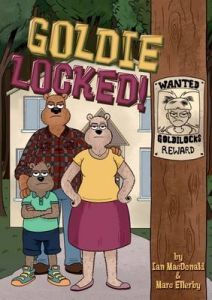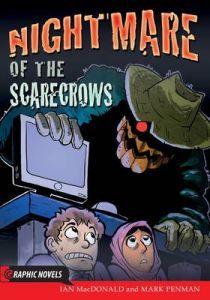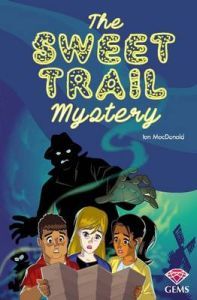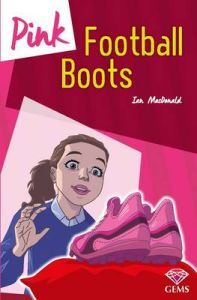Ian MacDonald
Ian thinks that being an author was a long held ambition as far back as he can remember. He had other ideas too, such as playing football for England, or lead guitar in a rock band... but instead, when he left school, he went into the printing industry and then became a teacher, ending up as a primary school deputy-head when he began writing stories for children.
Nowadays, Ian divides his time between writing his next book for Badger and visiting schools around the country, inspiring young writers in the classroom. His specialism is getting boys on board with reading and writing and his visit day for schools includes presentation, story-telling and writing workshops.Ian is delighted to be working with Badger to provide exciting and relevant reading material for children in school. He is especially proud of his stories for reluctant readers, including Pink Football Boots and The Sweet Trail Mystery.
Q&A with Ian MacDonald
What inspired you to write for reluctant readers?
I started writing whilst I was a primary school deputy-head where I regularly came across children, (mostly boys) who never picked up a book by choice. I suppose I was keen to dream up stories that would capture the imagination of even the most reluctant reader. I was thrilled when the School Library Association picked one of my titles, called Alien Teeth, as a recommended title on their Boys into Books scheme.
What challenges do struggling readers face when they open a book?
Often children, especially boys, are swamped by the sheer volume of text in so many books written for their age–group. This problem increases as children go through primary school, which is why so many 'turn off' from reading by ten and eleven.
What is your favourite type of character to create?
I love to dream up characters that are both crazy and a bit scary: strange aliens, marauding mummies... even a skateboarding granny! Watch out for an enormous (and hilarious) gangster called Jimmy the Fridge in The Sweet Trail Mystery!
What features and methods do you use to ensure that your books have that High Interest appeal that really engages young readers?
Tyrone is captain of the football team but hates reading! He doesn't want to read about the adventures of Fluffy Bunny... which is his reading level. He wants to read about football, aliens, skateboarding, monsters and something yucky that oozes from a tin-can! Not only that he wants the heroes in the stories to be like him! I pack my stories full of the weird and wonderful creatures... but the heroes who save the world from killer robots are schoolboys... just like Tyrone.
What difference do books like these make to children who are in need of literacy support?
The importance of providing the right reading material for the less able or reluctant reader simply cannot be measured. If we don't capture young readers now in primary school... then, too often, they are lost forever!
Can you give us any teasers of what to expect from The Sweet Trail Mystery?
Imagine Bugsy Malone meets Sherlock Holmes set in a northern sea-side town! Drop in a couple of incongruous gangsters, a tetchy teacher, a sinister ice-cream van and a plot to corner the sweet market... and you have all the ingredients for The Sweet Trail Mystery. Just add three curious children and stir!
What are the major themes of your work?
Unlikely heroes are a recurring theme in my stories. Often the child least likely to be picked for the school team turns out to be the one who saves the world from killer robots! As in all good stories, the hero always triumphs in the end.
What controls do you place on the vocabulary you use and how important is this?
As well as avoiding complex vocabulary and obscure terminology (whoops!) I make sure that the language I use is a feature of the everyday language of children in school. I also try to write dialogue with words and phrases children actually use.
What is your favourite children's book?
I remember being inspired as a child by the Just William stories by Richmal Crompton. As well as enjoying the stories, I remember being fascinated by the way the writer could create a hopelessly tangled web of events, but then everything worked out for William in the end!
Do you have any advice for aspiring writers/authors?
Don't tell the reader everything... let the reader do some work too.
Speak to our team today on 01553 816082 or if you would prefer us to call you back then please enter your details in the form below and a member of our team will call you back.








